Avid cyclist paralysed from chest down learning to be independent again
Sign up now: Get ST's newsletters delivered to your inbox
In 2021, Taufik Omar had to rebuild his life after a bicycle accident left him paralysed from the chest down.
SINGAPORE – In 2021, while cycling home, Mr Taufik Omar was involved in a traffic accident that left him paralysed from the chest down.
An avid sportsman, he went from playing soccer weekly and cycling twice a week to being disabled and in need of constant care.
The 56-year-old was in the Pasir Ris area when a taxi appeared suddenly in front of him. He grabbed his brakes, but could not stop in time.
“I was still conscious and, at first, thought it was not so bad. But it felt strange, like my legs were still on top of the taxi,” said the father of four young children, who was working as a Grab driver at the time.
Mr Taufik suffered multiple fractures to his ribs and spine in the accident – injuries that left him paralysed from the chest down. He is now wheelchair-bound.
The number of people who acquired their disability like Mr Taufik is not available. But there is data on Singapore residents who experience difficulties with daily activities.
It was collected for the first time in the 2020 population census.
It showed that 97,600 Singapore residents aged five and older were unable to, or had a lot of difficulty, performing at least one basic activity in six domains: seeing, hearing, mobility, self-care, communication, and concentrating or remembering.
In total, 62,500 people faced mobility challenges such as walking. The census also found that 32,100 residents had difficulty performing self-care activities like washing and dressing.
Mr Terance Low was 23 when he contracted viral encephalitis, which leads to an inflammation of the brain. For the last 24 years, his father Low Chai Huat has been helping him speak, walk, control his bladder and take care of himself.
The elder Mr Low, 86, is a widower and has four older children.
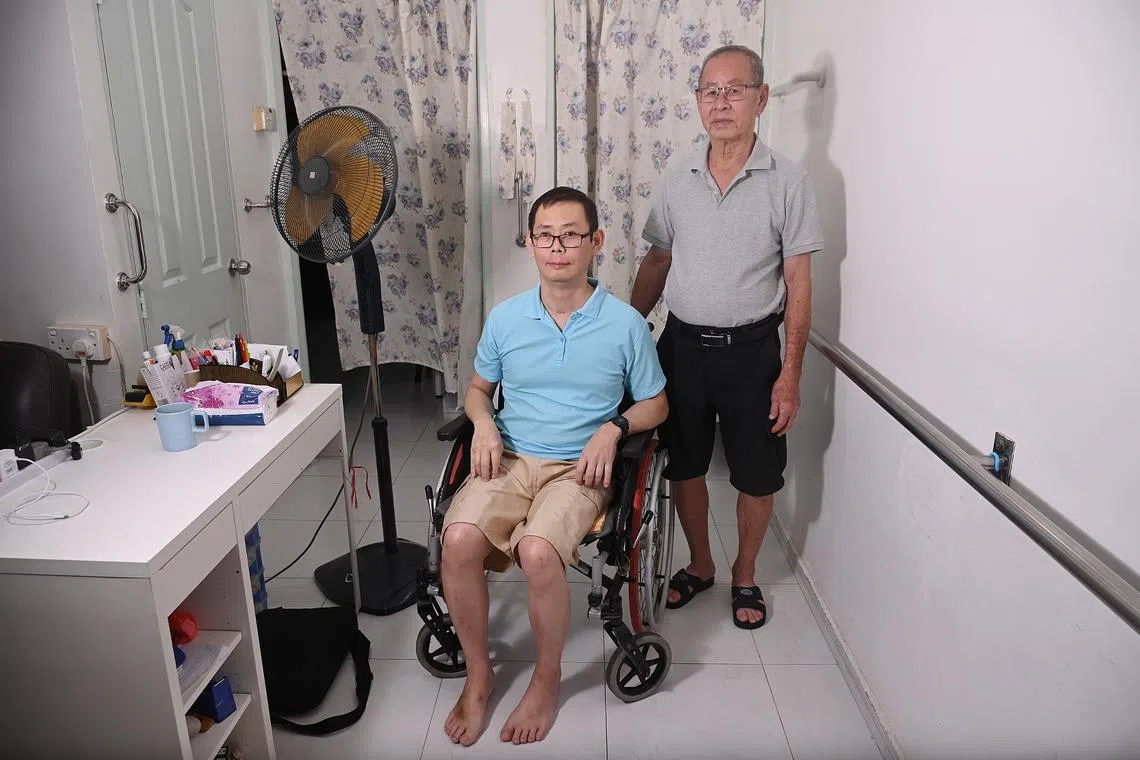
Mr Terance Low, 47, and his dad Low Chai Huat, 86, at their home in Potong Pasir.
ST PHOTO: DESMOND WEE
Mr Terance Low, 47, goes to the day activity centre in Outram, operated by local organisation SPD, thrice a week. There, he does activities designed to maintain his cognitive abilities and motor skills, such as writing and drawing.
The charity helps people with disabilities of all ages to reintegrate into mainstream society. Representatives of SPD had also approached Mr Taufik to help with his rehabilitation.
He was then two months into his recovery in Changi General Hospital.
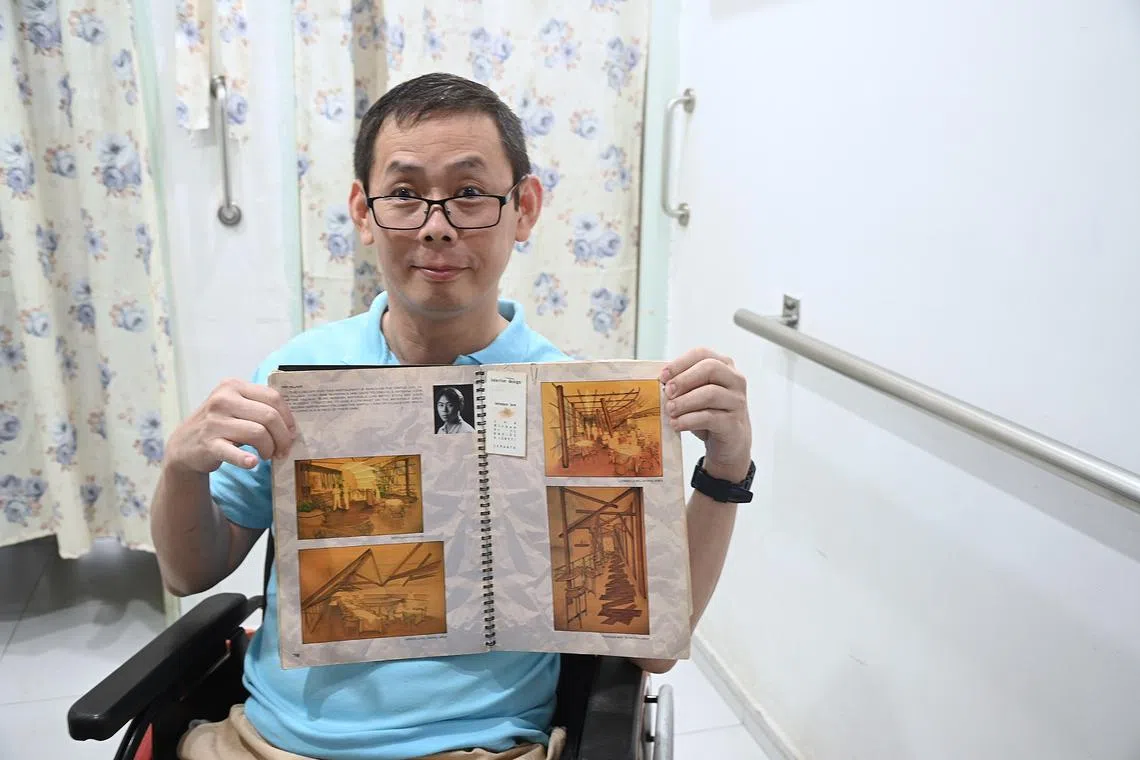
Mr Terance Low with his Nanyang Academy of Fine Arts interior design portfolio from 1995.
ST PHOTO: DESMOND WEE
Mr Taufik, who had worked as a senior IT administrator at a hotel for 22 years before becoming a private-hire driver, joined SPD’s transition-to-employment programme, which reintegrates people with acquired physical disabilities back into the mainstream workforce.
Aside from employment placement and support, the programme gives people access to occupational therapists, physiotherapists, social workers and employment support specialists.
Mr Taufik went through physical rehabilitation at SPD to gain greater independence in daily activities.
“Going to SPD for therapy gave some structure to my day. I didn’t want to just sleep and watch TV,” he said. “I would rather do something and be active. That is more like me, like how I used to be and what people know me for.”
He also drew strength from interacting with others undergoing rehabilitation at SPD.
“I met younger people, even teens with spinal cord injuries. I felt so sad for them,” said Mr Taufik.
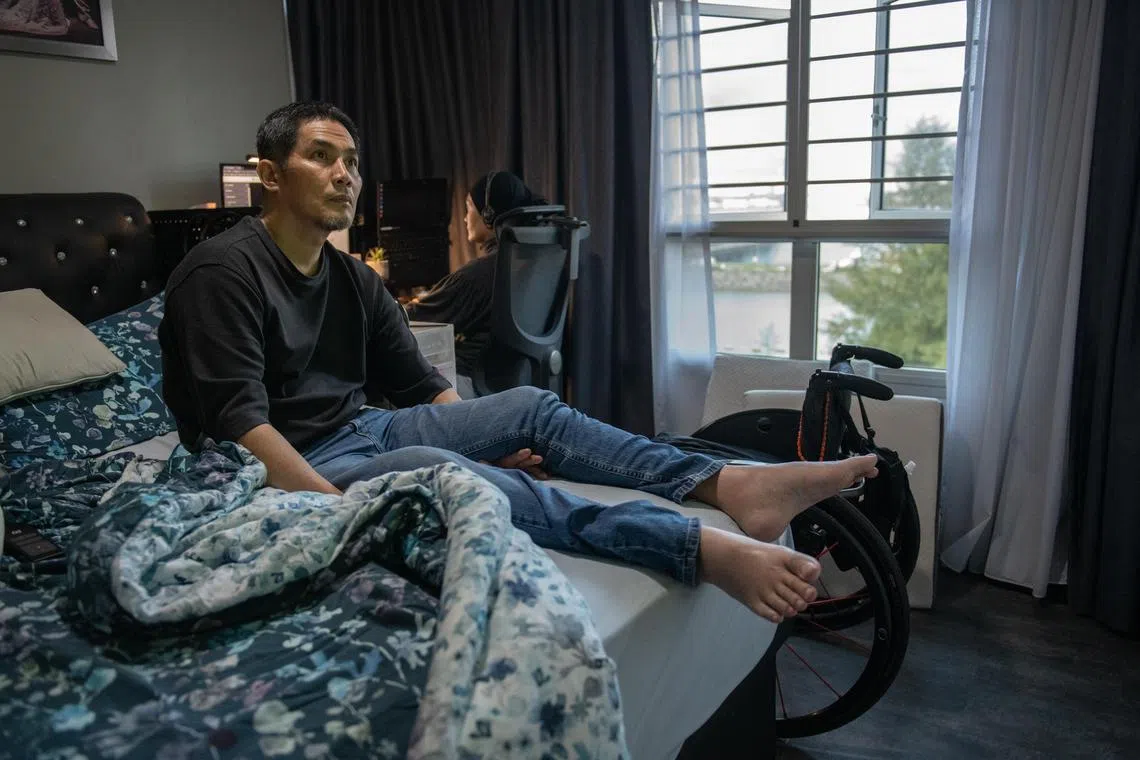
Mr Taufik Omar was paralysed from his chest down after getting into a bicycle accident in 2021.
ST PHOTO: SHINTARO TAY
Over the course of a year, he built up strength in his arms and upper body, and was able to use a wheelchair and lift himself in and out of his bed.
He also learnt to travel on public transport and get in and out of the family car on his own.
But he still needs help getting dressed and using the bathroom.
The Ministry of Health (MOH) said about 17,000 individuals have been benefiting from its severe disability schemes, including ElderShield and CareShield Life, as at end-2022. More than 85 per cent of them are aged 60 and above.
Common health conditions leading to severe disability include stroke and spinal cord injuries, and the progression of illnesses like dementia, said MOH.
Mr Taufik’s family has not applied for any of the schemes, preferring instead to be self-reliant. His wife Noraini Che Rahman, 44, works from home as a full-time admin specialist, and is around to help him.
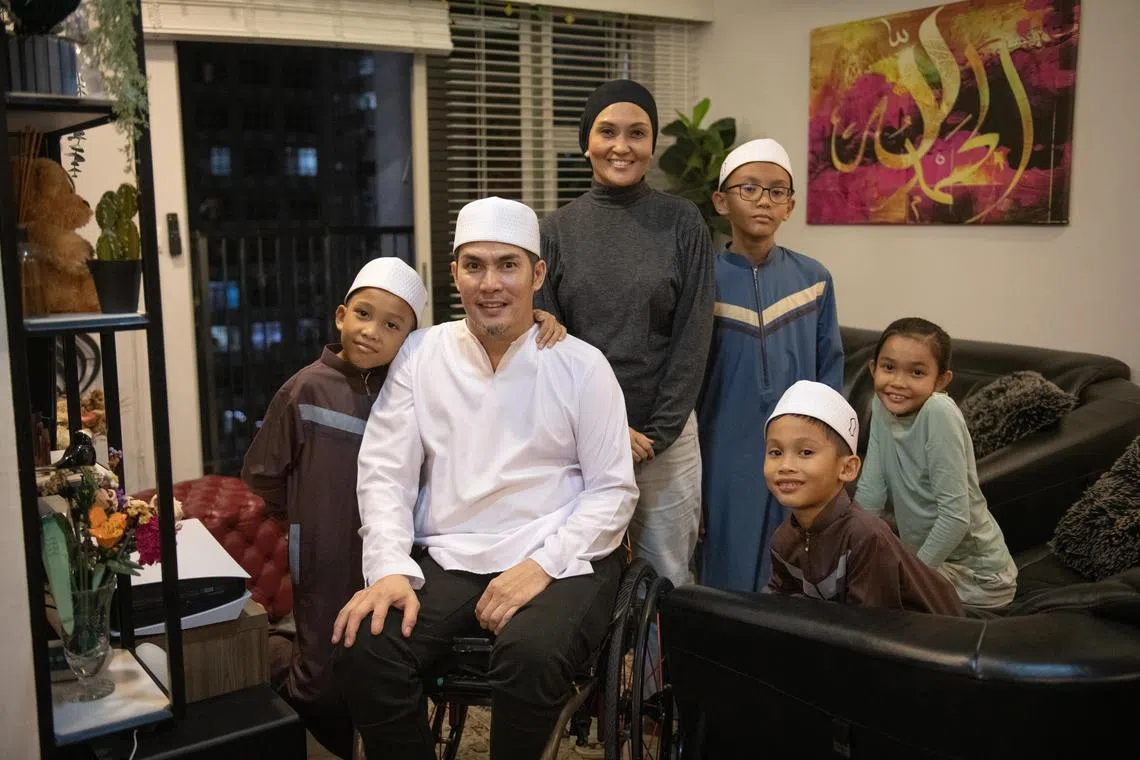
Mr Taufik Omar (second from left) with his wife Noraini Che Rahman and their children.
ST PHOTO: SHINTARO TAY
Mr Taufik is at present working part-time for a friend and earns $800 a month. From his home, he handles the help desk for people looking to rent futsal facilities.
Ms Noraini said: “He does not complain to anyone. He is very positive; even when he sees other people cycling, he is like ‘hey, I used to do that’, not ‘I can’t do that any more’.”
She massages his back when he gets nerve pain, which flares up despite him taking painkillers twice a day. But he is determined to be able to drive again.
Mr Taufik secured a special driving licence for people with disabilities after clearing the test with just one lesson. It allows him to drive a car fitted with a system that is operated only with hands.
“I hope to drive again. I miss it,” he said.
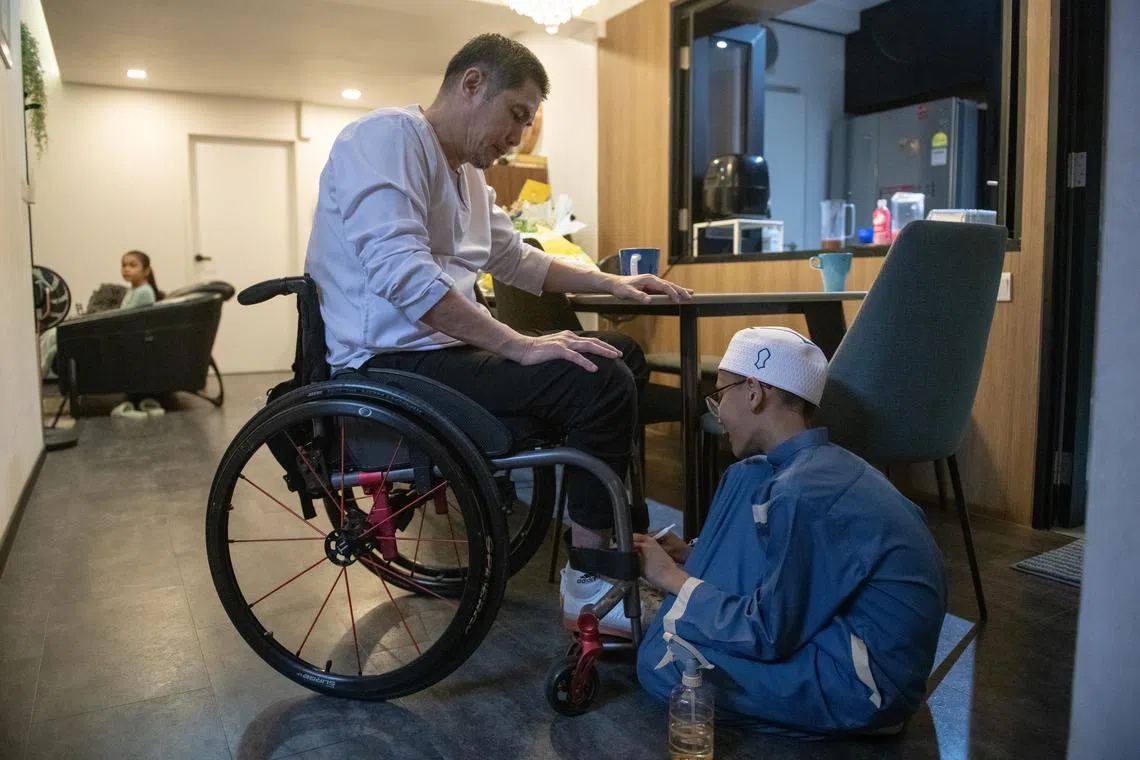
Despite his physical challenges, Mr Taufik Omar has managed to adapt to being wheelchair-bound.
ST PHOTO: SHINTARO TAY
While he cannot cycle with his children now, he joins them in his wheelchair, which can go faster with a motorised attachment.
In December 2022, he went on a long-awaited pilgrimage trip to Mecca with his family. His wife and children, who are aged seven to 13, helped him during the two-week trip.
Mr Taufik is hoping to participate in a treatment trial involving robotics to regain some mobility. If it does not work, he plans to train for wheelchair racing.
“Deep down, I hope to recover fully, even though the doctor said there is almost no chance of recovery,” he said.
“But I hope to accept whatever condition I have right now and live my life in a more fulfilling way.”


